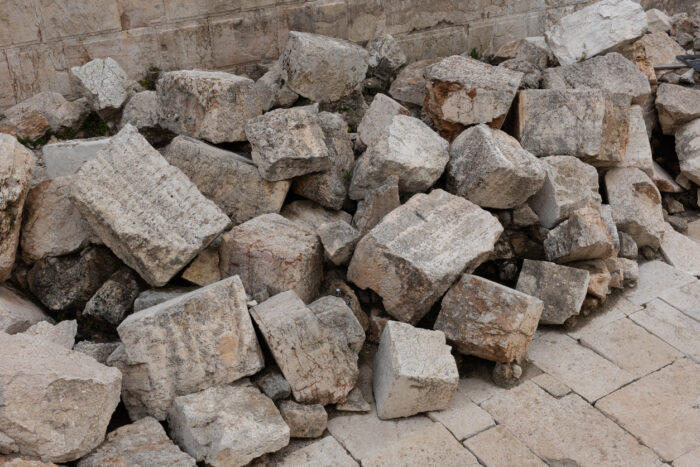Why were the First and Second Jerusalem Temples destroyed? Depending upon one’s perspective, those questions are profound, pointless, or perhaps a combination of the two. But how we answer those questions, especially on Tisha b’Av which mourns their destruction, can be quite meaningful and useful. All the more so for me, who actually yearns to see a Third Temple rebuilt, albeit only the one promised by the Prophet Isaiah — a Temple that will be a house of prayer (silence on the issue of sacrifice) for all people of all nations to access and use.
If we can understand what led to the destructions of Temple One and Temple Two, perhaps Temple Three can arise if we create a world that has adequately addressed the past causes for destruction. And even if not, those past causes are still very present today and they certainly demand our attention. How so? Our tradition teaches that, although they were destroyed by conquering armies, the First Temple was really destroyed because of idolatry and the Second Temple was destroyed because of baseless hatred. Need I say more?
Idolatry is not limited to the worship of stone gods. Idolatry is the false absolutization of the infinite, be it a god, an idea, or a value — be it a good one or a bad one, robbing it of its liveliness and its nimbleness, which are the very things that guarantee its enduring meaning and relevance. However well-intentioned it may be, however right the cause it serves may be, it always brings destruction in its wake. So, in a world increasingly animated by ideological, political, and social idolatries, Tisha b’Av is an ideal time to consider our own idolatries, and what we can do to correct for them.
And as for baseless hatred, the term leaves us room to keep on hating if we really want to, but it also reminds us that such hatreds may have less basis than we want to imagine. So, this Tisha b’Av, we can admit that many (all?) of us have people and things we truly hate. We may even be right about some of those hatreds being well-founded. But not all of them. Imagine a hatred you carry, and then dare to imagine further: As real as that feeling is, it may not be as justified as you tell yourself. What then? What could be built off that awareness? A Third Temple? Who knows. A better tomorrow? Almost without doubt.
Tisha b’Av reminds us that whatever pain we have endured, or continue to endure, we also carry within ourselves the tools we need to build beyond that pain. The rest is up to us.

